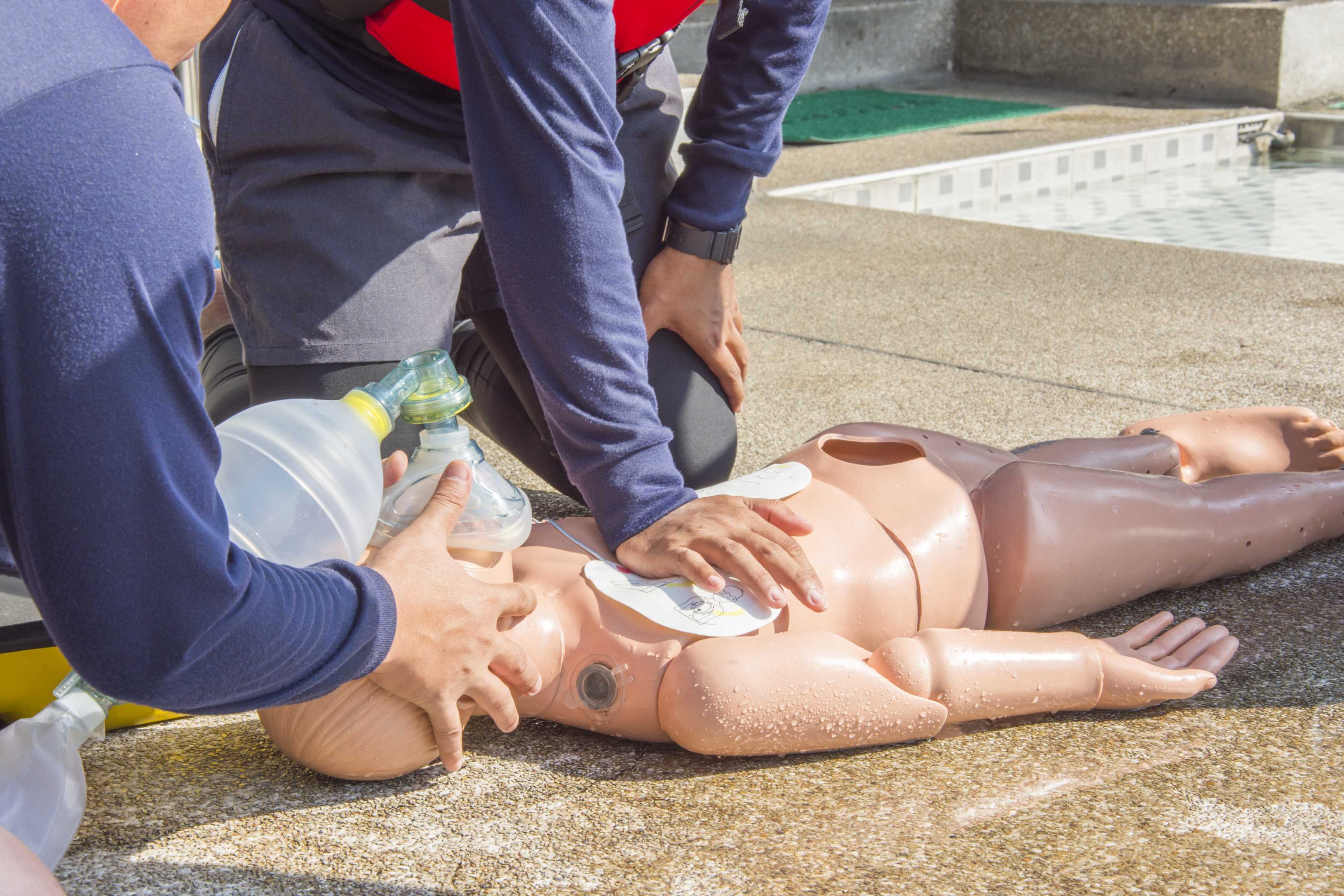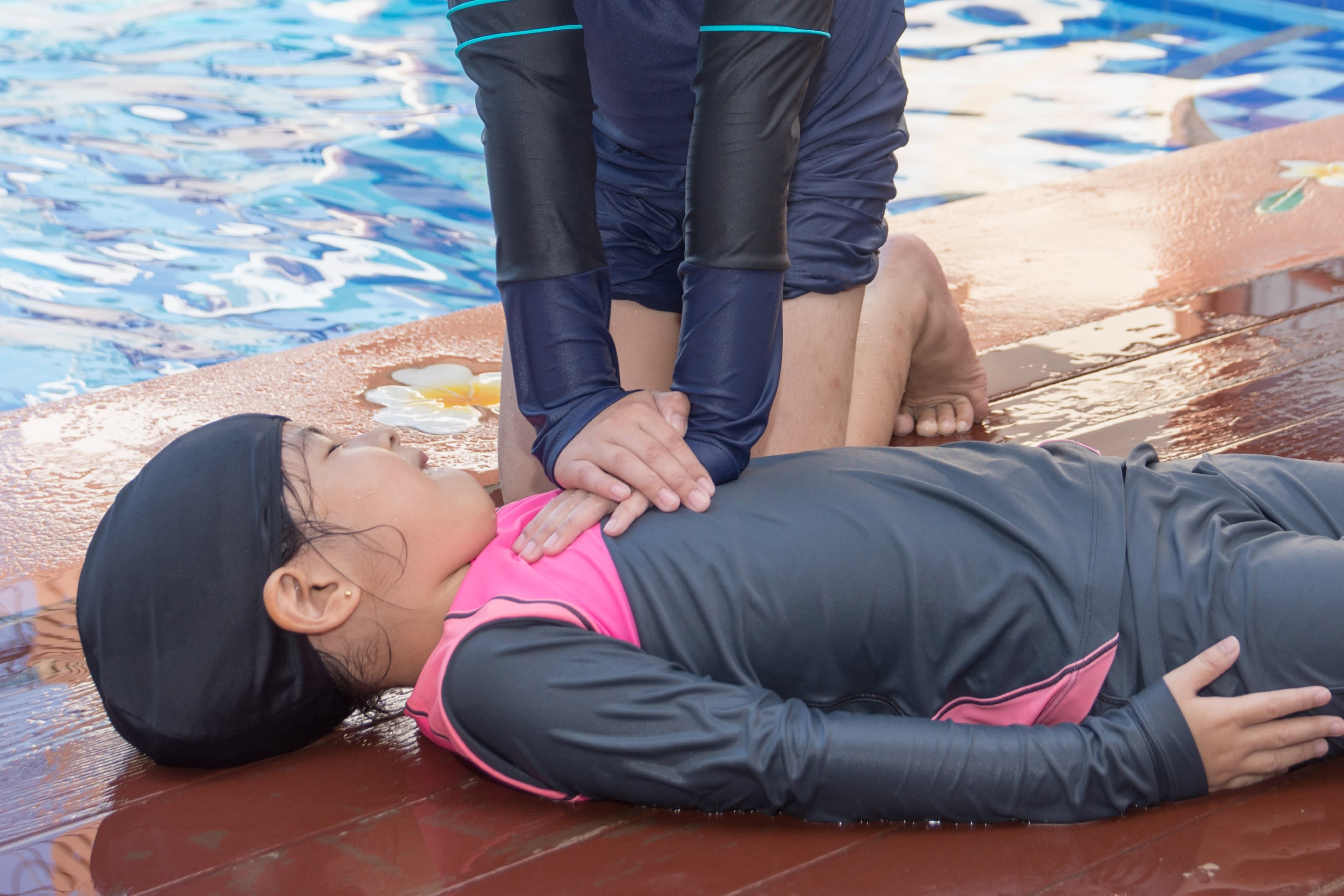What CPR Certification is Best? Key Factors to Consider

Posted on July 30th, 2024.
Imagine being in a situation where you're the first responder, the person everyone looks to when seconds count. Being well-equipped with the appropriate CPR certification tailored to your specific needs can give you that crucial edge.
Opting for the correct CPR certification isn't just about fulfilling a requirement; it's about gaining confidence and competence to act swiftly and effectively. Are you aware of how a Basic Life Support (BLS) certification can serve someone in a healthcare role versus a school setting? It's not merely about learning a set of techniques but ensuring that you're equipped to handle real-life scenarios pertinent to your environment.
You don't need to be a medical professional to recognize the value of relevant training—whether you're a teacher, a parent, or someone working in a high-risk environment, having the right skills can transform a critical moment.
Let's face it, knowing what type of CPR certification to pursue is a choice that could save lives.
Understanding the Types of CPR Certification
Understanding the various types of CPR certification can really help you decide what CPR certification is best for your specific needs:
Basic Life Support (BLS)
Basic Life Support (BLS) is the foundational CPR course tailored primarily for healthcare professionals like nurses, doctors, and EMS personnel. It covers CPR techniques for adults, children, and infants, and includes training on using automated external defibrillators (AEDs).
This certification is particularly essential in clinical environments where quick response times are critical. You might also find it beneficial if you work in roles that require interaction with the public, such as school personnel or childcare providers, as its comprehensive approach ensures you are well-prepared.
Advanced Cardiac Life Support (ACLS)
Moving further, Advanced Cardiac Life Support (ACLS) is another significant type of CPR certification. This course goes beyond the basics and delves into more complex issues like managing cardiac arrest, acute dysrhythmia, stroke, and acute coronary syndromes.
It’s designed for medical providers who direct or participate in the management of cardiopulmonary arrest and other cardiovascular emergencies, including doctors, advanced practice nurses, and paramedics. If you are in a role requiring deeper medical knowledge and skills, this certification is crucial. So, if you’re wondering what CPR certification is best for someone in advanced care, ACLS is your answer.
Pediatric Advanced Life Support (PALS)
Lastly, Pediatric Advanced Life Support (PALS) is tailored specifically for healthcare providers who care for infants and children. This specialized certification focuses on the critical skills needed to effectively respond to pediatric emergencies including cardiopulmonary arrest, respiratory issues, and shock in children. You’ll find this course ideal if you work in pediatric departments, hospitals, or any healthcare setting involving children.
Choosing the Right CPR Training Program

Assess the Credibility of the Certifying Organization
When choosing a CPR training program, one of the foremost considerations is the credibility of the certifying organization. Established entities like the American Heart Association (AHA) and the Red Cross are widely recognized for their thorough, evidence-based curricula. These organizations offer structured CPR training programs that are periodically updated to incorporate the latest medical guidelines, ensuring you're learning the most current best practices.
Engaging with credible sources means your certification will be universally accepted, which is essential if your job mandates verified proof of competency, such as in the healthcare, corporate, or educational sectors. Large-scale recognition is particularly important if your professional role demands standardized validation.
Pick a Training Format
The next aspect to consider is the format of the training. Over the past few years, the availability of online CPR training courses has expanded, offering convenience and flexibility. Online modules are beneficial if you have a tight schedule, but it's crucial to verify that these courses also include an in-person, practical component. The practical hands-on training is indispensable as it allows you to practice on manikins, getting direct feedback from instructors. Purely online CPR programs may not fulfill requirements for certain jobs, particularly in healthcare settings that emphasize hands-on expertise.
Consider Hands-on CPR Training
Another critical factor is the inclusion of interactive hands-on CPR training within the CPR and First Aid Training course. This hands-on segment of CPR training instills a sense of readiness and confidence that pure theoretical learning simply cannot achieve. Real-world scenarios presented during hands-on sessions can help simulate the pressure and urgency of real emergencies, ultimately improving retention of the skills taught. If you're someone who learns optimally through tactile engagement and real-time feedback, prioritize programs that offer substantial practice opportunities. You should also consider the student-to-instructor ratio in these sessions; a lower ratio can mean more personalized guidance, enhancing your learning experience.
Personalized Training Programs for Different Needs

At the heart of a practical CPR certification lies the concept of personalized training programs. Why settle for a one-size-fits-all approach when you can have a tailored experience that hones in on your specific environment and responsibilities?
- For instance, consider workplace CPR training. This program is designed to meet the unique challenges and policies of your work setting. Not only does it equip employees with lifesaving skills to assist colleagues in emergencies, but it also aligns with OSHA regulations, ensuring your business complies with legal standards. By focusing on the specific hazards present in your workplace, these programs make training highly relevant and, as a result, more memorable and effective.
- Similarly, school programs offer a customized approach that targets the safety needs of a younger population. These courses generally cover CPR techniques suitable for both adults and children, incorporating vital choking techniques and AED usage training. By adapting the curriculum for teachers, administrators, and even students, the training becomes a shared community responsibility.
- For parents and caregivers, personalized CPR and First Aid Training programs are invaluable. These courses specifically address scenarios that you’re more likely to encounter at home. Think about infant and child CPR techniques, recognizing pediatric respiratory distress, or proper handling of choking techniques. Tailoring the program to focus on home environments where children are most vulnerable can dramatically increase the relevance and retention of these critical skills.
The Role of Experienced Instructors
One of the most essential elements that significantly impact the quality of a CPR and First Aid Training course is the role of experienced instructors. These certified CPR instructors bring a wealth of knowledge and hands-on experience to the training environment, making a substantial difference in your learning experience.
When you receive training from an instructor who is experienced in life-saving techniques, you're not just learning from a textbook; you're learning from someone who has applied these skills in real-life emergencies. This kind of practical insight is irreplaceable. Are you prepared for split-second decision-making? Experienced instructors can provide invaluable tips and anecdotes from their considerable field experience, giving you practical tools and the confidence needed to act swiftly and effectively during emergencies.
What makes certified CPR instructors particularly impactful is their ability to simulate real-world scenarios accurately, which vastly improves your situational awareness and response strategies. These instructors often incorporate drills, feedback sessions, and simulations that mirror the high-pressure conditions of actual emergencies. This method of teaching helps you to better understand the psychological and physical stresses involved and prepares you to handle them more effectively. Moreover, instructors experienced in life-saving techniques can offer personalized coaching and adjustments to ensure you're performing each step correctly, which can be crucial in life-or-death situations.
The value of experienced instructors extends beyond the immediate skills you'll acquire during your CPR and First Aid Training course. They also instill a sense of readiness and vigilance that becomes part of your daily routine. Have you ever wondered how medical professionals stay calm under pressure? It's through rigorous, realistic training and the mentorship of seasoned practitioners. Instructors with real-world experience can provide lessons on maintaining composure, executing precise actions, and working efficiently under stress—skills that are indispensable whether you're a healthcare professional, teacher, or parent.
Related: CPR Certification for Personal Trainers & Fitness Instructors: Why It Matters
Wrapping Up
When choosing your CPR certification program, keep in mind that the quality of your education will be immensely shaped by the experience and expertise of your instructors. They are not just teaching you a skill; they are endowing you with the confidence and competencies to save lives.
At Quest Safety Training, the focus always remains on providing you with comprehensive, hands-on courses that not only cover essential CPR skills but also equip you with the confidence to handle real-world emergencies. By understanding the importance of working with seasoned instructors, personalized programs, and credible organizations, you've taken a significant step toward preparedness and competence.
Are you ready to enhance your safety skills and preparedness? Get Started With Our CPR & First Aid Training.
Are you looking for personalized training solutions that align with your industry or role? Get in Touch Now!
Have specific questions or need more details? Don't hesitate to email us at [email protected]. Remember, investing in proper safety training today can be the difference between a minor incident and a significant emergency tomorrow. Make the conscious choice to protect your team, your family, and your community with the best training available.
Contact
Get in Touch
We're here to help you on your journey to safety. Have questions or need more information about our training programs? Reach out to Quest Safety Training – where safety meets expertise!
